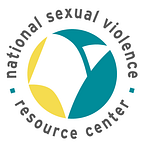Reentry into a Digital World
By Johanna Mills
After spending the better part of three decades in prison, trying to find my way in the outside world felt like trying to fly a spaceship. The digital revolution had passed me by while I was locked up. When I was sentenced to prison in 1993, the internet was relatively niche. But when I got out in 2019, it was something that everyone needed to function in society.
Yet I didn’t grasp at first just how dramatically the world had changed. Nor did I have a basic understanding of what skills I would need to survive. In prison, there is no training on the internet. I’d never even seen a smartphone, except on television. Much of what I learned about the web was from my lawyer after I got out. It was strange and disorienting how everything happened online; even something as simple as getting a bus map required an internet connection. It was pretty clear that if I didn’t learn to familiarize myself with online tools, I wouldn’t stand a chance at making it.
Between my lawyer and the help of a friend, I managed to get by. I got a smartphone and used it to find housing in a transitional living facility. When I started looking for a job, I was shocked to find that all applications had to be submitted online. Eventually, I managed to complete an online form and got a job — no easy feat for someone just getting out of prison.
I was navigating the world as well as I could. Yet I wasn’t prepared for the dangers that exist online. If I had been, I might have avoided the terrible situation I soon found myself in. After spending three months in transitional housing, I found online what seemed like a great opportunity to rent a room. When I went to see it, the man who posted the ad told me the pictures displayed on the wall were of his family, and that the toys scattered on the floor belonged to his kids. There was no reason for me to think I had to be vigilant about online ads. I figured that this was how most people got housing. It was only after I moved in that I realized the pictures were part of a ruse. He was a sexual predator. The week I lived there was scary. He walked around the house naked. I was terrified, less of what he might do to me than what I might do to him if he tried to attack me. If I defended myself, I would risk violating my parole, which would mean going back to prison. I explained the situation to my parole officer, and he helped me move.
I realize now that online predators are a major problem, and it’s not just formerly incarcerated people like me who are prime targets. But I have to think that my lack of experience with digital communications made me especially vulnerable. After all, it’s not like I’m ill-prepared to recognize abusers. I am a survivor of sexual abuse in prison and, as a member of Just Detention International’s Survivor Council, have long been involved in the fight to end this violence and ensure people’s safety. I know a lot about spotting the warning signs of abuse.
The online world brings an entirely new set of dangers. Someone who’s a bit more tech-savvy might have thought to check whether other women had given warnings about this man, or if the website he advertised on was credible. Those things simply weren’t on my radar.
How can we help formerly incarcerated people stay safe? One way is to ensure that they get help using and understanding new technology — both in prison and upon reentry. But it’s also important that the anti-sexual abuse movement be more inclusive of people who have limited online experience because they’ve been locked up. With digital training, the experience of reentry — which is already full of hurdles — can be significantly less scary, and safer. I was able to escape from danger without violating my parole. Others might not be so lucky.
Johanna Mills is a survivor advocate and a member of Just Detention International’s Survivor Council. She has lived in San Diego since her release from prison.
